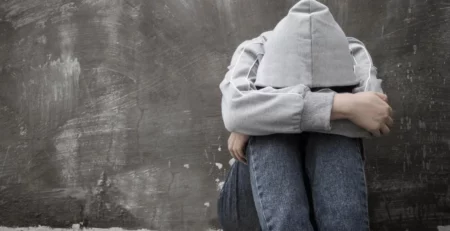An Informal Religious Trauma Test
Get Answers on Religious Trauma and Support at Icarus Nevada
Do you believe you’ve experienced religious trauma? Many people take great comfort and inspiration from religious teachings and use their faith to enrich their lives. However, others take their belief systems to unhealthy extremes, forcing a strict or even harsh religious upbringing on their children. Such indoctrination can damage relationships and cause their offspring to struggle with mental health.
Our free religious trauma test can help you discover if you have these trauma symptoms.
Icarus Behavioral Health is a five-star rated drug and alcohol rehab center in Las Vegas, Nevada. What many people don’t know is that we are also leaders in helping people heal from other mental health disorders, including complex post-traumatic stress disorder (C-PTSD), depression, and more. We provide clients with evidence-based healing without spirituality.
Keep reading to learn about how religious communities can turn toxic, causing more harm than good, and take our religious trauma quiz. And if you or a loved one decide trauma treatment support is needed, our caring admissions team is only a confidential phone call away!
What Is Religious Trauma Syndrome?

The term “religious trauma,” came from Dr. Marlene Winell, a licensed psychologist with over 30 years of experience in working with trauma symptoms. She coined the term “Religious Trauma Syndrome” in 2011, describing the traumatic outcomes that can happen in a family.
Dr. Winell’s work alerted the psychology and recovery communities to the need for trauma-informed therapists, as well as the need for dedicated trauma treatment centers to accept and effectively support those struggling with trauma that has a religious root.
Many Church or Religious Organization Communities Can Cause Religious Trauma
No organized religion is inherently “wrong.” However, many religious institutions can cast guilt and shame on members, intentionally or not.
Here’s an honest conversation about how some religious community standards can be almost impossible for many to adhere to:
Cult Teachings and Religious Trauma
Cult leaders control their members through extreme manipulation. These authority figures have a dictator-like grip on their members. Control tactics can include:
- Physical punishment
- Sexual abuse (with some leaders claiming child “brides”)
- Social isolation for the non-compliant
- Personal boundaries are non-existent
- Brainwashing or psychological control
Does that explain a little more about how Jim Jones convinced 909 community members of the Peoples Temple to drink that poison in 1978?
Confidential Trauma and PTSD Assessment – Call Now!
Mainstream Religious Extremists Preach Fear of a Higher Power
Most mainstream religious beliefs preach about a kind, forgiving, loving God, Allah, or another entity. But some extreme wings of almost every religion use tactics that can cause worry or fear of an angry or unrelenting Higher Power.
The tactics can include:
- Cultural stigma and guilt for questioning faith in living a life that deviates from their cultural standards
- Implying that adhering to strict gender norms reflects whether a person is a “good fit” for the community.
- Fear of damnation or punishment in this life and/or the afterlife
- Excluding members or shaming them for non-compliance
- Spiritual abuse – twisting scriptures to create anxiety or a “need” for the religious community
An example of this could be the Catholic Church, which excludes otherwise compliant members from taking the Sacrament of Communion after a divorce. This exclusion – even if the divorce came after domestic violence – can shame a person and make them feel isolated from family and friends who may still get to participate fully. This can leave the divorced person feeling loss or grief, which can be triggered even by a new spouse or partner, no matter how well-meaning.
Non-Mainstream Religion Members May Also Struggle With Religious Trauma

Besides the mainstream faiths, other adjacent sects, such as the Amish, the Church of Latter Day Saints (LDS), Apostolic United Brethren, Scientology, and fundamentalist Baptists, may also exhibit the negative feelings that can come from any organized religion.
A Famous Example of Religious Trauma: Jill Duggar
Jill Duggar, a fan favorite from the TLC series 19 Kids and Counting, is a prominent example of someone who must learn to live with a questionable religious past.
Jill’s parents, Jim Bob and Michelle Duggar, are outspoken Institute in Basic Life Principles members. The group’s fundamentalist Baptist teachings rely on male authority figures.
Jill’s Amazon Prime documentary called Shiny Happy People tells what happened after her parents learned that her older brother, Josh, had sexually assaulted Jill and several of her sisters. Despite her brother’s abuse, Jim Bob sent him away from the home to a religious camp and shielded him from police investigations.
Jim Bob allegedly forced Jill and her younger sister Jessa to do media interviews, downplaying the incident. He knew that he could make his daughters feel guilty, explaining how they’d let down the family’s media enterprise if they did not speak up on behalf of Josh…her abuser.
A Widely Seen Example of Trauma from a Religious Upbringing
Jill also explained how her parents used physical punishment, based on the saying, “Spare the rod, spoil the child.” Even when TLC cameras were present, Michelle would take children off the set, excusing herself to offer “encouragement.” That was the code word that allowed Michelle to hurt the children with cameras in the next room none the wiser.
A final blow came in adulthood. That’s when Jill alleges that Jim Bob signed her name to a contract (illegal, she claims, as she was no longer a minor) and then withheld all her TLC earnings, leaving her with few resources and no paycheck for seven years.
Jill’s cousin, Amy Duggar King, confirmed the allegations of abuse and has been an outspoken champion of her Duggar cousins. Jill reports having mixed feelings and an incredibly strained relationship with her parents to this day. She loves them but can no longer adhere to their worldviews.
Religious Trauma and the LGBTQ+ Community
Many world religions have specific beliefs that inflict trauma symptoms on the LGBTQ+ communities more than other cohorts.
NBC News reported how the Mormon church website once stated that “same-sex attraction is not a sin, but acting on it is.”
Additionally, the Washington Post explained that people in same-sex marriages are “apostates,” out of accordance with the LDS church. Furthermore, they banned baptizing babies born to same-sex households until they turn 18 or until the parents disavow their sexuality.
That information may provide insights into why some community members reject religious communities altogether and instead embrace general spirituality.
Explore the Most Common Religious Trauma Symptoms

This list explains some religious trauma symptoms you should know if you think you’ve been harmed. It’s also important to pause and reassure you that these impacts do not reflect on your moral character.
Instead, they’re a reflection of harmful religious teachings, often by people who don’t understand (or perhaps don’t care about) the long-term mental health implications.
- Anxiety or panic attacks, especially related to religious beliefs
- Depression, or a sense of sadness and despair
- Reduced self-esteem and self-worth
- Loss of trust in loved ones or friends still “in the faith”
- Lack of setting boundaries in relationships
- Social withdrawal or self-isolating
- A faith crisis, doubting one’s relationship with God
- Insomnia and fatigue
- Stress that interferes with daily life
While these insights can give you a sense of what religious trauma symptoms look like, they can also indicate other mental health issues, such as the symptoms of complex trauma or PTSD. You must seek an assessment and support from a skilled therapist or psychologist to regain your self-esteem and minimize the trauma.
Get Effective Trauma Treatment Options – Reach Out Now!
Surviving Religious Trauma and Healing the Pain
Healing from religious trauma is not an easy path; its negative outcomes can stay with someone for life. However, with much hard work and self-reflection, people can learn from the lived experience and manage the symptoms.
It takes many therapies to heal, including group and individual therapy. Some people join a survivor’s group for extra support. A therapist may not be able to undo the damage of the trauma altogether. However, therapy can help you learn about setting boundaries and help you explore coping mechanisms to manage the fallout.
Is There an Official Religious Trauma Syndrome Quiz?
No. Religious trauma syndrome is very real to those struggling with it. However, it is not included in the DSM-5 Diagnostic Manual. Thus, there is also no official test.
Take Our Religious Trauma Test (It May You Help See Why You Can’t Relate to Religion)

This religious trauma quiz can help you understand why you may have a confusing relationship with religion – if you support any specific religious community at all. If you see these signs after you take the quiz, seek help from therapists with at least a Master’s Degree and experience in trauma, such as can be found with our trained and caring staff at Icarus in Nevada. At our facilities, we offer inpatient services for trauma, as well as a full range of outpatient options for those who need support alongside flexibility in scheduling.
Connect with Icarus in Nevada for Trauma Support Options
Have you taken our religious trauma quiz and think you need help? At Icarus Nevada, we don’t believe a religion dictates your value as a person. We take a secular, non-religious approach to therapy. We’ve helped a whole community of survivors return to happiness after being part of such a group.
Calling us for help is completely anonymous. Let’s connect today!











